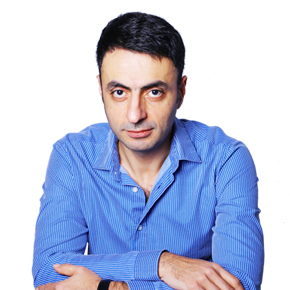A major event took place in Russia recently: the de-marginalization of the Russian national idea. Over all the years following the collapse of the USSR, the authorities have been attempting to keep the national idea far from the people, associating it with every kind of characters, which an average Russian resident couldn’t have a special liking for. And for a while, the policy used to work. But it was getting clearer that such a policy is doomed.
As the imperial idea was fading away from the minds of the Russian people who started realizing more and more that they don't want to keep the empire at the expense of their own economic resources, the people began thinking more and more about what might unite them in the absence of the imperial idea. People’s aspiration to association is inevitable; the traditionally communal thinking of Russians opposes the attempts of the authorities to atomize the community through all sorts of cunning tricks, including the prosecution of disgraceful girls who held dances in the church and the “pulling apart” of the intellectual Moscow youth and naïve provincials to various directions of the hastily entrenched political spectrum.
It turned out that neither common people, nor well-educated computer hackers can't help seeing what truly unites them. It became clear to everyone that both are Russians. We can only be surprised at the monkey business the authorities practiced by pulling the wool over people’s eyes and by some miracle causing them not to notice this obvious reality.
What results has this astonishing event yielded? Willingly or not, the authorities will now have to reckon with the Russians’ wish to be presented in the community as such, more precisely, as people around which the Russian state is formed. By and large, there is no other alternative – Russia is truly a national state in which the overwhelming majority of people consider themselves Russians.
The remaining minority, which over long years had been parasitic on the fact the authorities consciously avoided the very idea of uniting Russians in one people (sufficient to recall the term "россияне" introduced by Yeltsin) will from now on have to take into account that they deal with Russians and reside in the Russian state. Just the way it was in tsarist Russia. Just the way it should have been from the very start of the collapse of the USSR.
In its turn, it implies that from now on, along with its own interests, authorities will be forced to take into account the national interests of the Russian people. Instead of such statements as “our fellow citizens abroad” they will gradually start addressing them in a right way - “Russians abroad”.
Now let’s see what it means particularly for Armenians and Armenia. On the whole, it’s good news. Why? Because it’s not clear how much Russia, as a state, is interested in preserving a Christian civilization in Transcaucasia loyal to the Russians, but it definitely meets the interests of Russians. The Russian national state (at a certain degree, of course) will be loyal to Armenia, while the state in which the role of Russians is not clear has completely ambiguous priorities in this issue. For example, the business-interests of certain elites can overweigh in it, and Armenia will simply be exchanged with something more essential.
The strengthening of the role of Russians in the society will lead (and it already does) to the toughening of the migration policy. It’s also beneficial for Armenia as the uncontrolled outflow of Armenians to Russia was considerably facilitated by the mess and lack of control of immigration processes in Russia.
Certainly, just like every rapid social process, the strengthening of Russian nationalism doesn't lack extremities and problems. All kinds of critical situations and conflicts are possible. Russians need time to realize who their friend is and who is enemy, and what national interests they pursue. But sooner or later, everything will be settled, and we will have a more comprehensible and loyal neighbor acting out of the national interests of the Russian majority and not out of the unclear imperial ambitions of certain leaders.
Aram Pakhchanyan is the Co-Founder of Ayb Educational Foundation and Vice-President of ABBYY. The views expressed in the column are his own and may not coincide with those of Mediamax.

















